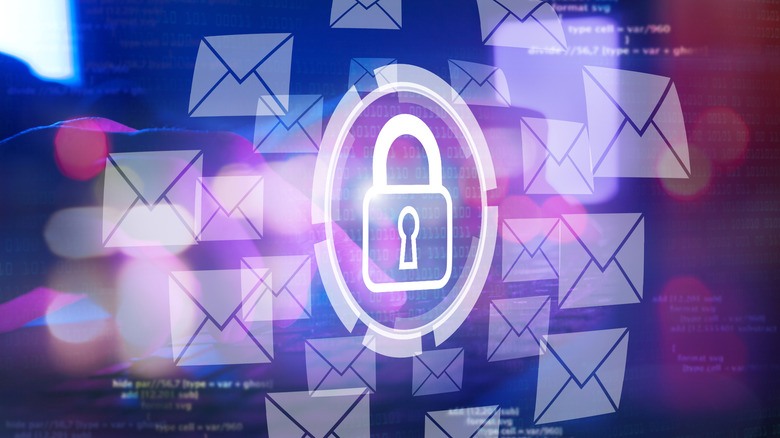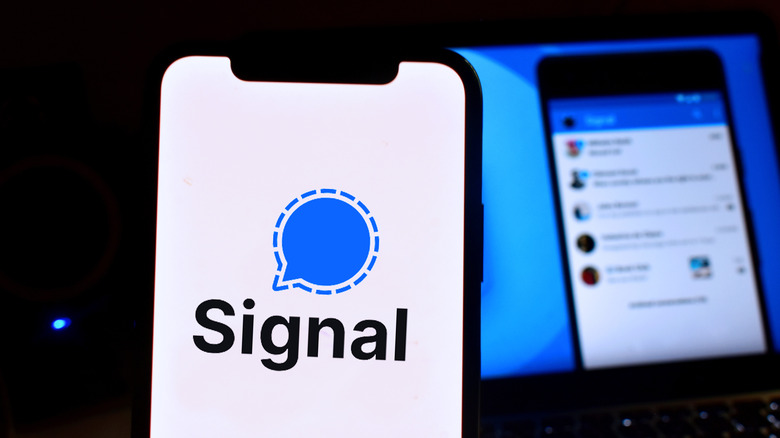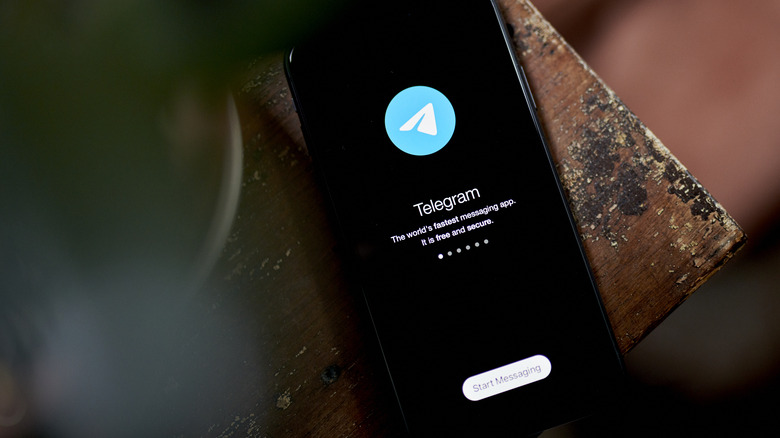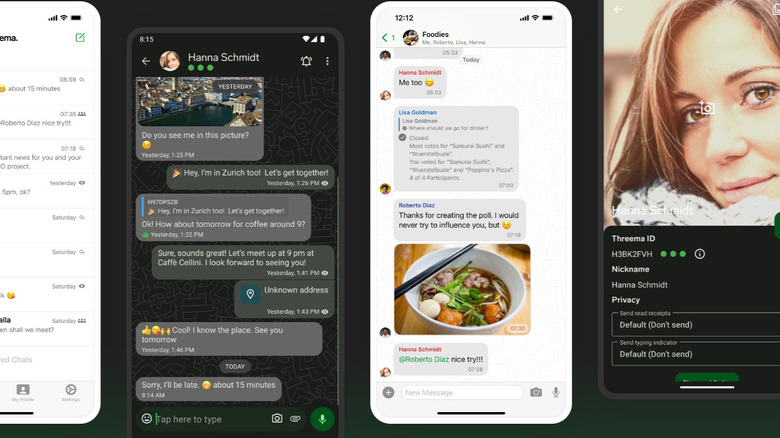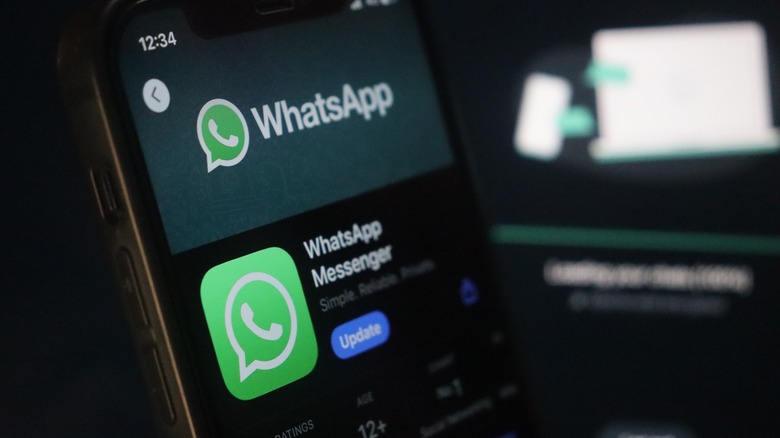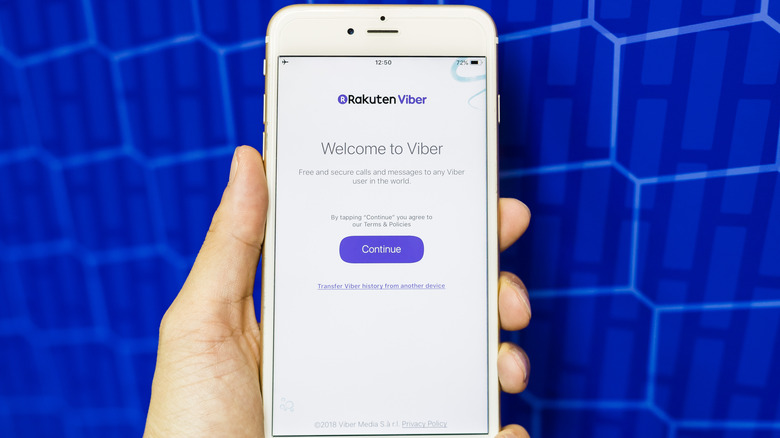5 Of The Best Private Messaging Apps For Android In 2024
In one way or another, most of us sacrifice elements of our privacy to use apps for free. We hand over our data to Big Tech in order to perform our jobs, consume content, communicate with others, and interact with the world around us.
However, few of us would be comfortable sharing our most private communications with third parties. No matter how you feel about digital privacy, there are presumably some things you'd like to keep between you and the people with whom you are communicating. If you've got an Android phone, achieving that can be quite challenging. That is where private messaging apps come in: they utilize end-to-end encryption, ensuring that your messages are securely transmitted and can only be accessed by the intended recipient.
There is definitely a market for these apps, but we all have different needs and preferences, so narrowing down the options can be difficult. Here are five private messaging apps to check out in 2024.
Signal
Signal is a free and open-source messaging app that is owned by the non-profit Signal Foundation. Since generating profit is not part of the equation for Signal, it has no reason to collect user data—and it doesn't. To use the app, you need a smartphone and a phone number, that's it.
The messages you send through Signal are secured by the Signal Protocol, which employs state-of-the-art encryption and is considered the industry gold standard. This means that no one, not even Signal, can read or access your messages. If law enforcement comes knocking on Signal's door and demands they hand over your information, the company would have nothing to give, because nothing is stored.
All communications carried out via Signal are encrypted by default, so you can safely make audio and video calls, send disappearing messages, photos, files, and so on. There's just one issue: Signal is not as popular as mainstream messaging apps, and it's safe to assume most of your contacts are not using it.
Telegram
Telegram is a great option if you're looking for a private messaging app for Android that has social media-type features. As a user, you can join all sorts of channels and communicate with like-minded individuals. This is not without its downsides, being that it is possible to encounter disinformation and extremism, but platforms with little to no moderation tend to be that way.
With that said, Telegram is primarily a messaging app. You can use it to send messages, photos, videos, files, participate in group chats, and such. Basically, it has all the features you'd want from a messaging app. Unlike Signal, Telegram is not end-to-end encrypted by default — you have to manually enable Secret Chats in the settings to secure your communications, so keep that in mind.
However, Telegram has one major advantage over Signal: popularity. The app has more than a billion downloads on Google Play, compared to Signal's 100 million. It's also completely free, which makes it a solid choice for anyone who cares about online privacy.
Threema
Threema is a pretty unique product as far as private messaging apps go. For a start, it's not free. Threema's pitch is pretty simple: instead of paying with your data, pay us a one-time fee of $5.99 to use the app; it doesn't even need your email address or phone number.
Indeed, the app's brief privacy policy document suggests that essentially no personal data is collected from users. Threema is designed in a way to minimize all data collection as such, so even contacts and chats are stored on the user's device, as opposed to the company's servers (located in Switzerland). Naturally, Threema is end-to-end encrypted, and offers the features you'd expect, from group messaging to secure file sharing and voice calls.
It should be noted that researchers from ETH Zurich discovered several potential vulnerabilities in Threema's security infrastructure in 2023. In a statement, the company described the findings as "interesting from a theoretical standpoint," but said that "none of them ever had any considerable real-world impact."
Meta, the parent company of Facebook, Threads and Instagram, has a terrible reputation when it comes to privacy. Deservedly so, some would say. Over the years, Meta has been involved in too many scandals to mention, from the Cambridge Analytica controversy, to the ongoing issues it is facing with European regulators over its data collection practices.
In short, if you have any interest in guarding your privacy, you might be inclined to avoid Meta products. But the instant messenger WhatsApp could be the sole exception. All messages, videos, files, and calls exchanged through the app are protected by the same protocol Signal uses, which means WhatsApp is as private as it gets in that regard.
The association with Meta might give some people pause about using WhatsApp, and the app does collect more data than Signal, but it's still a decent option. Plus, it's free and has the widespread adoption apps Signal and Telegram will likely never have.
Viber
Viber is another free and widely-used messaging app that comes with a number of security and privacy features.
All private and group communications in Viber are inherently protected with end-to-end encryption, so you don't need to tinker with the settings to enable this extra level of security. What you can do, however, is choose whether to share your online status, block others, and disable data collection. You can also use the app to send disappearing messages, participate in various communities (which are not end-to-end encrypted), created trusted contact lists, and so forth.
Now, the downsides. Viber is closed-source and it collects some data from users, as outlined in the app's privacy policy. This includes data that is gathered for advertising purposes, and shared with various third-party partners. Obviously, it would be better if this were not the case, but Viber is still a fine choice for privacy-conscious Android users, primarily due to its widespread adoption.
